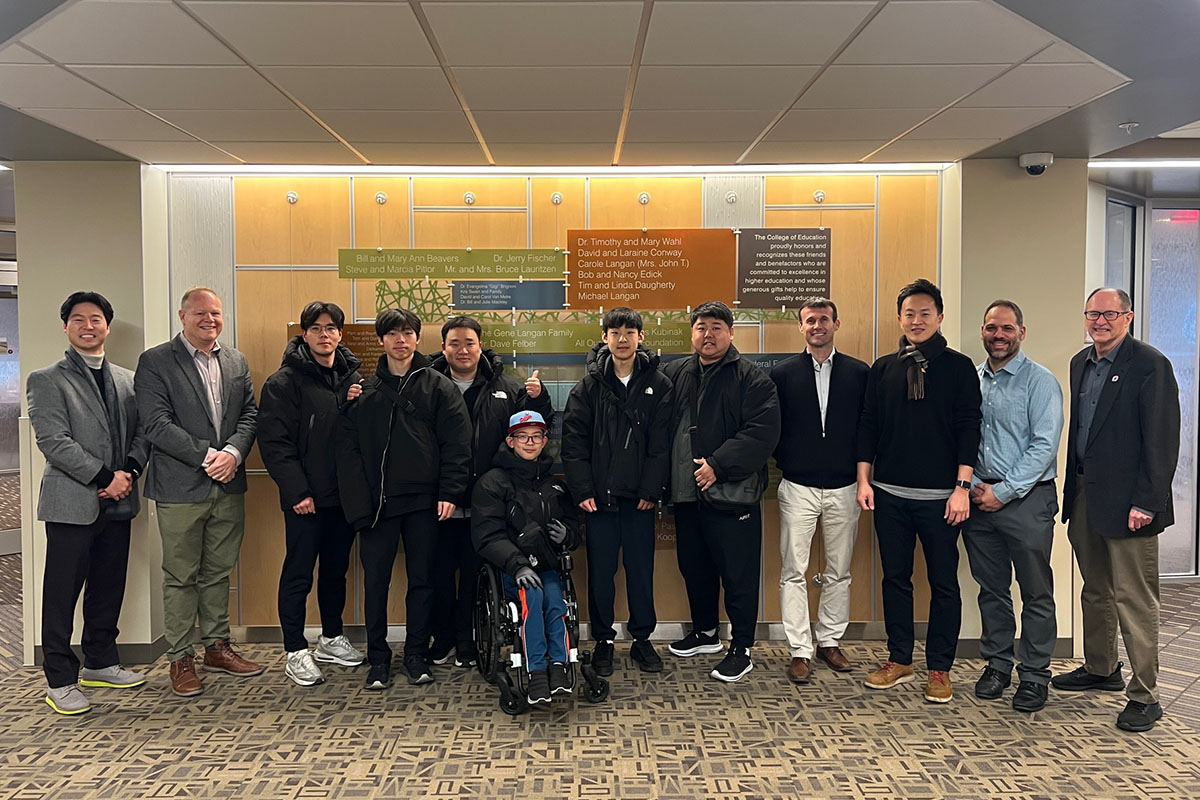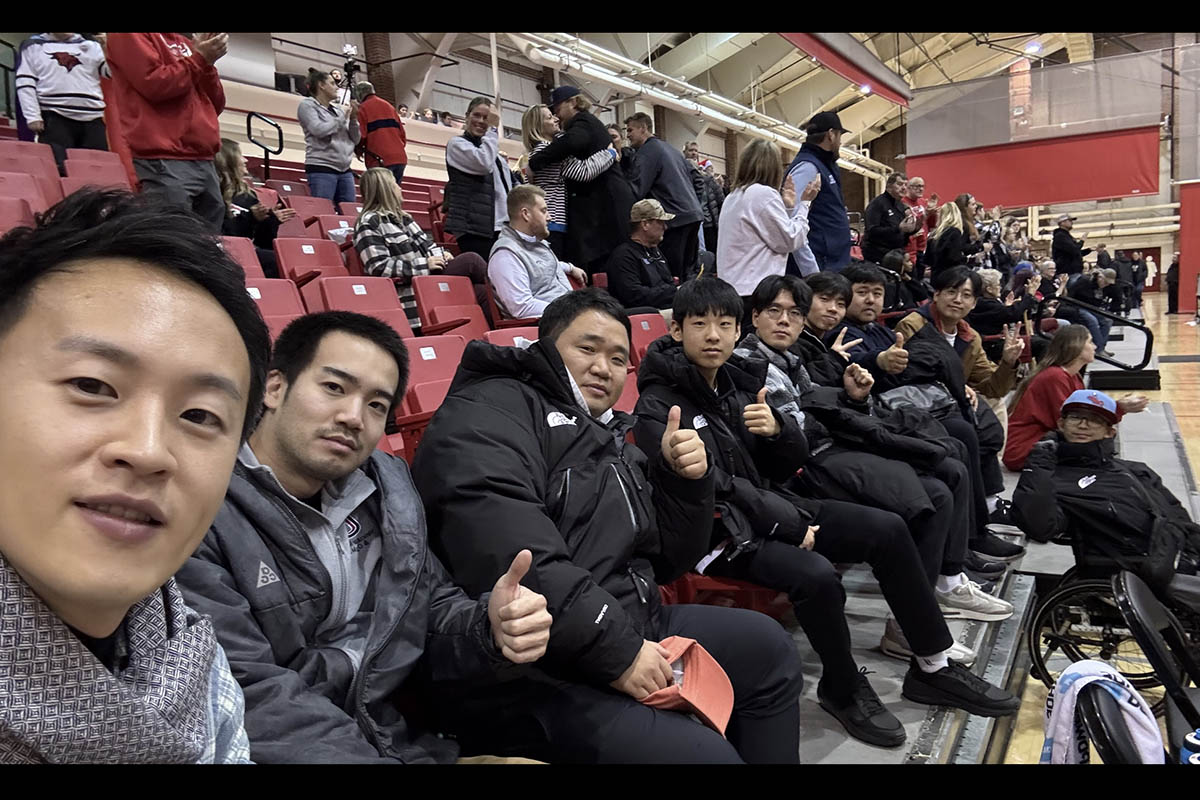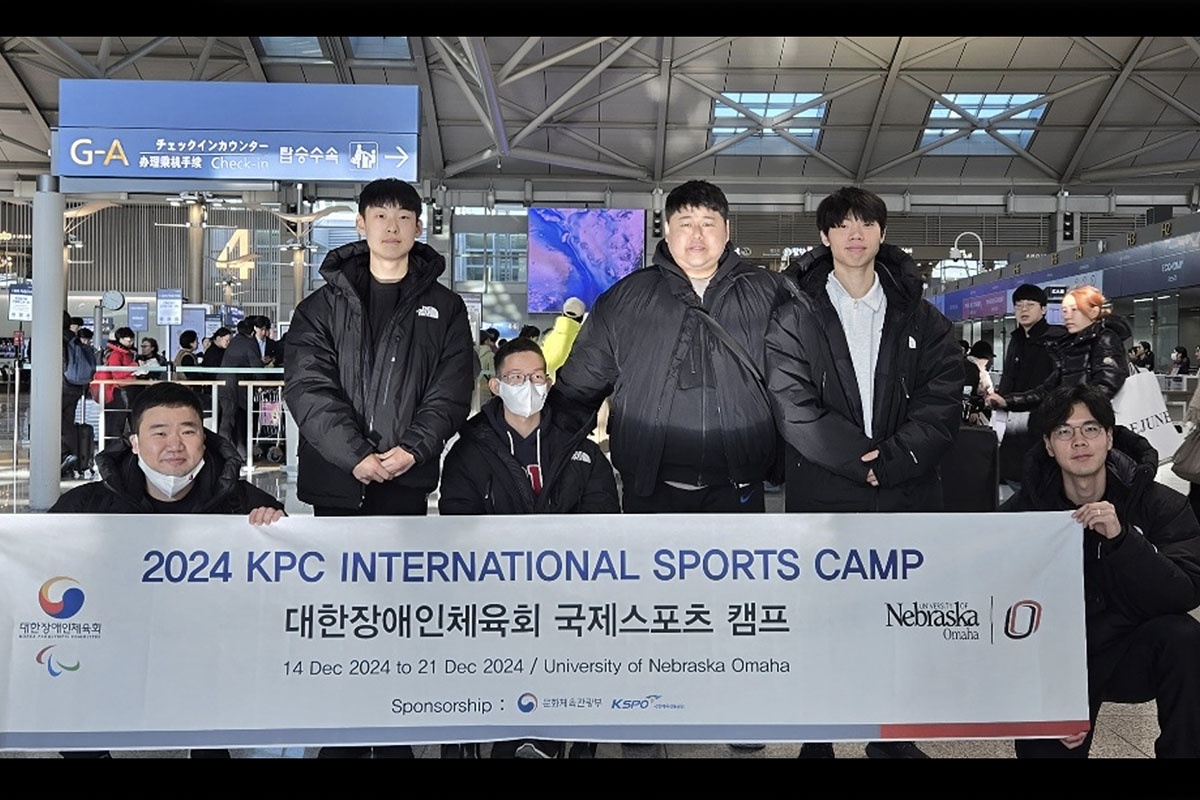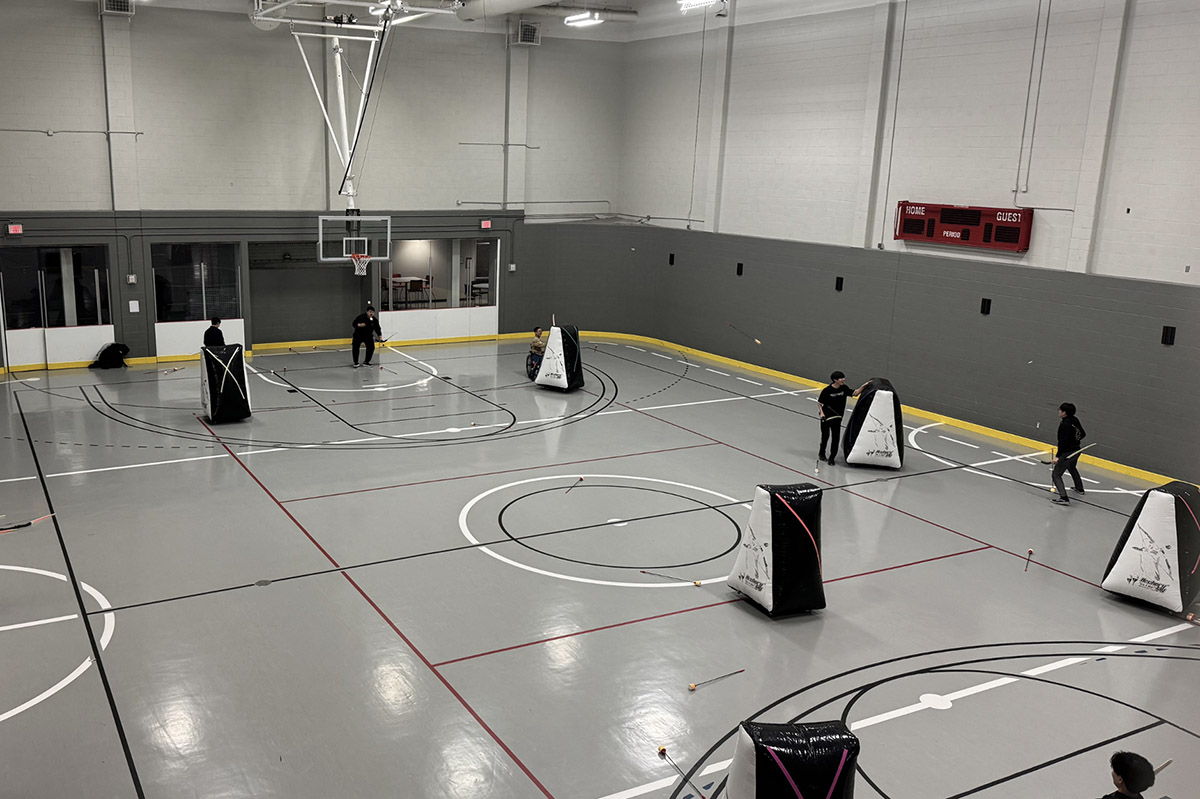School of Health and Kinesiology Hosts Korean Paralympic Committee for Sports Camp, Builds Global Partnership
UNO's School of Health and Kinesiology recently hosted the Korean Paralympic Committee, launching a partnership to drive adaptive sports research, expand student learning, and inspire global innovation in sports science.
- published: 2025/01/06
- contact: College of Education, Health, and Human Sciences
- email: unocehhs@unomaha.edu
- search keywords:
- Paralympics
- Adaptive Sports
- Research
Highlights:
- UNO's School of Health and Kinesiology recently welcomed the Korean Paralympic Committee during a week-long sports camp for athletes with disabilities, combining campus activities and performance testing.
- This new partnership aims to advance adaptive sports research, enhance UNO student learning opportunities, and foster global innovation in sports science.
In December, UNO’s School of Health and Kinesiology (H&K) welcomed athletes and representatives from the Korean Paralympic Committee (KPC) during a week-long international sports camp. The camp marked the start of a new partnership established through a Memorandum of Understanding (MOU) and led by Song-young Park, Ph.D., H&K associate professor and co-director of UNO’s Vascular and Metabolic Phenotyping Research Lab.
"Faculty members and students at UNO gained a deeper understanding of the physiological and psychological characteristics of para-athletes."
The camp provided a unique opportunity for KPC athletes and coaches to engage in adaptive sports activities like wheelchair basketball and archery tag with UNO students and faculty. Participants also attended an Omaha Women’s Basketball game and underwent scientific testing, such as vascular fitness tests and maximal aerobic capacity measurements, to explore new approaches to athletic performance.
KPC athlete Young-Hoon Noh highlighted the quality of UNO’s facilities, and the diverse activities offered to students. "I was amazed by the size of the campus," Noh said, noting how well-equipped the university is to support student needs.
Coach Young-Ho Ko also praised the collaboration, emphasizing the potential impact of UNO’s state-of-the-art testing methods. "UNO prioritizes student welfare," Ko said. "I hope to implement similar techniques for KPC athletes to improve performance."
Park noted the broader impact of the partnership. "Faculty members and students at UNO gained a deeper understanding of the physiological and psychological characteristics of para-athletes," he said. "This collaboration contributes to advancing para-athlete sports performance and overall health."
Supported by a team of faculty and graduate students, including Park, Dongwoo Hahn, Ph.D.; Gwenael Layec, Ph.D.; and H&K Interim Director Adam Rosen, Ph.D.,; the partnership also aims to enrich academic opportunities for UNO students. The KPC’s para-athletic training center, one of the largest in the world, presents additional avenues for scholar exchanges and research collaborations.
This collaboration reflects UNO’s commitment to inclusion and innovation in adaptive sports. Hosting the camp allowed the university to strengthen global connections and contribute to the advancement of adaptive sports research, benefiting disabled populations and paralympic athletes worldwide.



